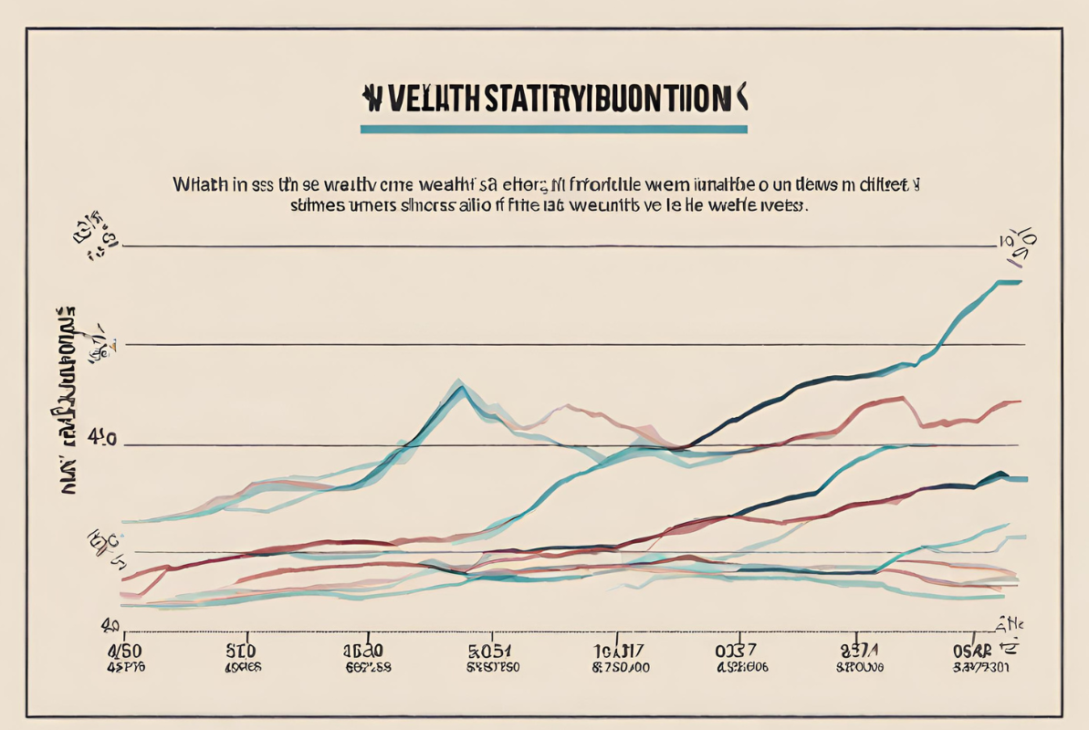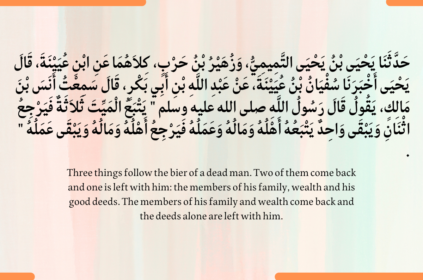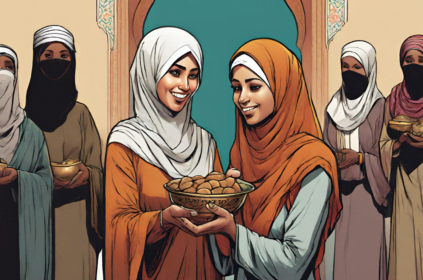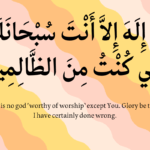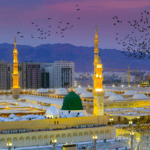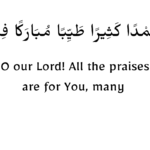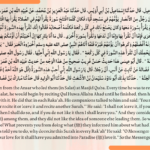- Hadith About Wealth Distribution
- The Setting: Prophet Muhammad's (ﷺ) Visit to Sa'd in Makkah
- The Dilemma: Inheritance and Generosity
- The Prophet's Wisdom: A Lesson in Moderation
- Guidance on Family Welfare: Striking a Harmonious Balance
- Contemporary Reflection
- Conclusion About Wealth Distribution in Islam
بِسْمِ ٱللَّٰهِ ٱلرَّحْمَٰنِ ٱلرَّحِيمِ
The concept of wealth distribution in Islam holds profound significance, aligning with the teachings of Prophet Muhammad (ﷺ).
This post delves into the timeless wisdom imparted by the Prophet concerning wealth and its equitable distribution.
As we explore the hadith narrated by the Banu Sa’d, we will unravel essential lessons that resonate with the contemporary challenges of managing wealth and fostering generosity.
Wealth Distribution in Islam serves as the cornerstone of economic justice. Prophet Muhammad’s (ﷺ) counsel provides a guiding light in navigating the complexities of financial stewardship.
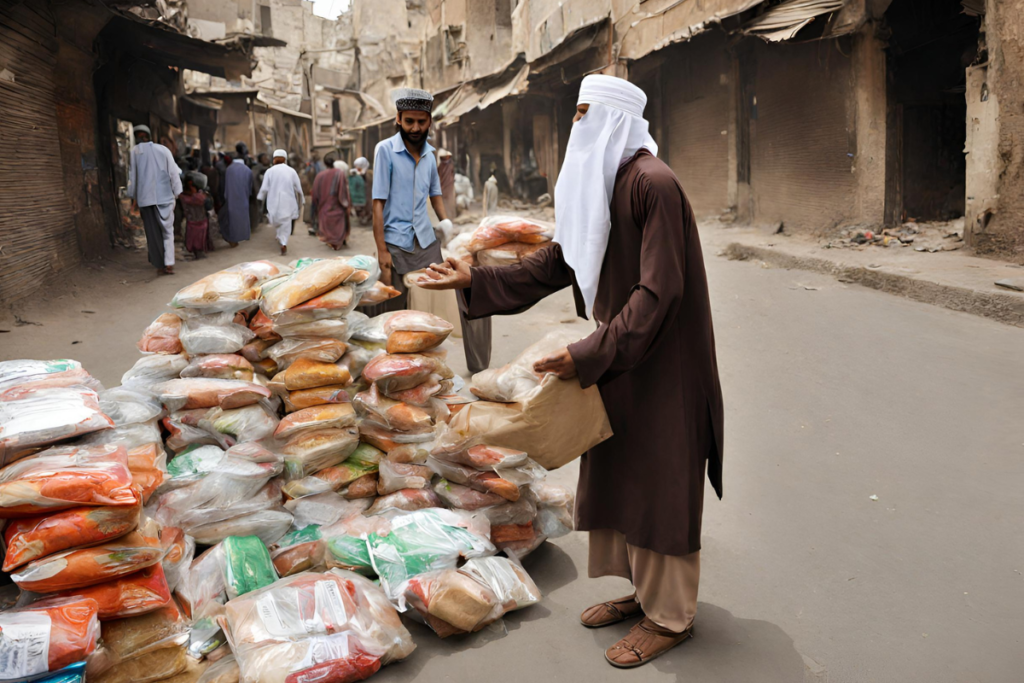
Hadith About Wealth Distribution
حَدَّثَنَا مُحَمَّدُ بْنُ الْمُثَنَّى، قَالَ: حَدَّثَنَا عَبْدُ الْوَهَّابِ، قَالَ: حَدَّثَنَا أَيُّوبُ، عَنْ عَمْرِو بْنِ سَعِيدٍ، عَنْ حُمَيْدِ بْنِ عَبْدِ الرَّحْمَنِ قَالَ: حَدَّثَنِي ثَلاَثَةٌ مِنْ بَنِي سَعْدٍ كُلُّهُمْ يُحَدِّثُ عَنْ أَبِيهِ أَنَّ رَسُولَ اللهِ صلى الله عليه وسلم دَخَلَ عَلَى سَعْدٍ يَعُودُهُ بِمَكَّةَ، فَبَكَى، فَقَالَ: مَا يُبْكِيكَ؟، قَالَ: خَشِيتُ أَنْ أَمُوتَ بِالأَرْضِ الَّتِي هَاجَرْتُ مِنْهَا كَمَا مَاتَ سَعْدٌ، قَالَ: اللَّهُمَّ اشْفِ سَعْدًا ثَلاَثًا، فَقَالَ: لِي مَالٌ كَثِيرٌ، يَرِثُنِي ابْنَتَيْ، أَفَأُوصِي بِمَالِي كُلِّهِ؟ قَالَ: لاَ، قَالَ: فَبِالثُّلُثَيْنِ؟ قَالَ: لاَ، قَالَ: فَالنِّصْفُ؟ قَالَ: لاَ، قَالَ: فَالثُّلُثُ؟ قَالَ: “الثُّلُثُ، وَالثُّلُثُ كَثِيرٌ، إِنَّ صَدَقَتَكَ مِنْ مَالِكَ صَدَقَةٌ، وَنَفَقَتَكَ عَلَى عِيَالِكَ صَدَقَةٌ، وَمَا تَأْكُلُ امْرَأَتُكَ مِنْ طَعَامِكَ لَكَ صَدَقَةٌ، وَإِنَّكَ أَنْ تَدَعَ أَهْلَكَ بِخَيْرٍ”، أَوْ قَالَ: “بِعَيْشٍ، خَيْرٌ مِنْ أَنْ تَدَعَهُمْ يَتَكَفَّفُونَ النَّاسَ”، وَقَالَ بِيَدِهِ.
Three of the Banu Sa’d related from their father that the Messenger of Allah, may Allah bless him and grant him peace, visited Sa’d (ibn Abi Waqqas) in Makkah and Sa’d wept.
He asked, “Why are your weeping?” Sa’d replied, “I fear that I will die in the land from which I have emigrated as Sa’d (ibn Khawla) died.”
The Prophet said, “O Allah, heal Sa’d!” three times. Sa’d said, “I have a lot of property which my daughter will inherit.
Shall I will all of it away?” “No,” he replied. Sa’d asked, “Two-thirds?” “No,” he replied. “A half then?” Sa’d asked. “No,” he answered. Sa’d asked, “A third?” “A third,” he said, “but a third is a lot.
What you give as sadaqa from your property is sadaqa. What you spend on your family is sadaqa. What your wife eats of your food is sadaqa for you. It is better for you to leave your family in a state of plenty (or he said “livelihood”) than to leave them where they have to importune people.”
Source: Al-Adab Al-Mufrad: 520
Narrated by: Banu Sa’d
The Setting: Prophet Muhammad’s (ﷺ) Visit to Sa’d in Makkah
To comprehend the essence of wealth distribution in Islam, we first turn to the historical account of Prophet Muhammad’s (ﷺ) visit to Sa’d ibn Abi Waqqas in Makkah.
Sa’d’s apprehension about his impending death in a foreign land unveils the genuine concerns individuals harbor regarding their material legacies.
The Prophet’s compassionate response, marked by both empathy and spiritual insight, sets the tone for a discourse. It shows the delicate balance between worldly possessions and the eternal journey.
In this encounter, Sa’d’s vulnerability mirrors the universal human struggle with mortality and the desire to leave behind a positive impact.
The Prophet’s prayers for Sa’d exemplify the power of spiritual intervention in addressing personal anxieties related to wealth and the future.
The Dilemma: Inheritance and Generosity
Sa’d’s contemplation on wealth distribution opens a gateway to a broader discussion on inheritance and generosity.
The Prophet’s guidance, as articulated in the hadith, sheds light on the delicate art of bequeathing wealth.
Sa’d’s inquiry about the extent of his property to be inherited unravels a nuanced dialogue, emphasizing moderation and proportionality.
Prophet Muhammad’s counsel encourages moderation in wealth bequeathal, rejecting extremes while advocating for a fair distribution.
The significance of striking a balance in inheritance is highlighted. It emphasizes the Prophet’s wisdom in ensuring that neither extravagance nor deprivation mars the principles of wealth distribution in Islam.
The Prophet’s Wisdom: A Lesson in Moderation
Engaging in a profound dialogue, the Prophet and Sa’d discuss the inheritance process, with the former placing a premium on moderation.
The Prophet’s voice resonates throughout the conversation, as he guides Sa’d through the nuanced decision-making process.
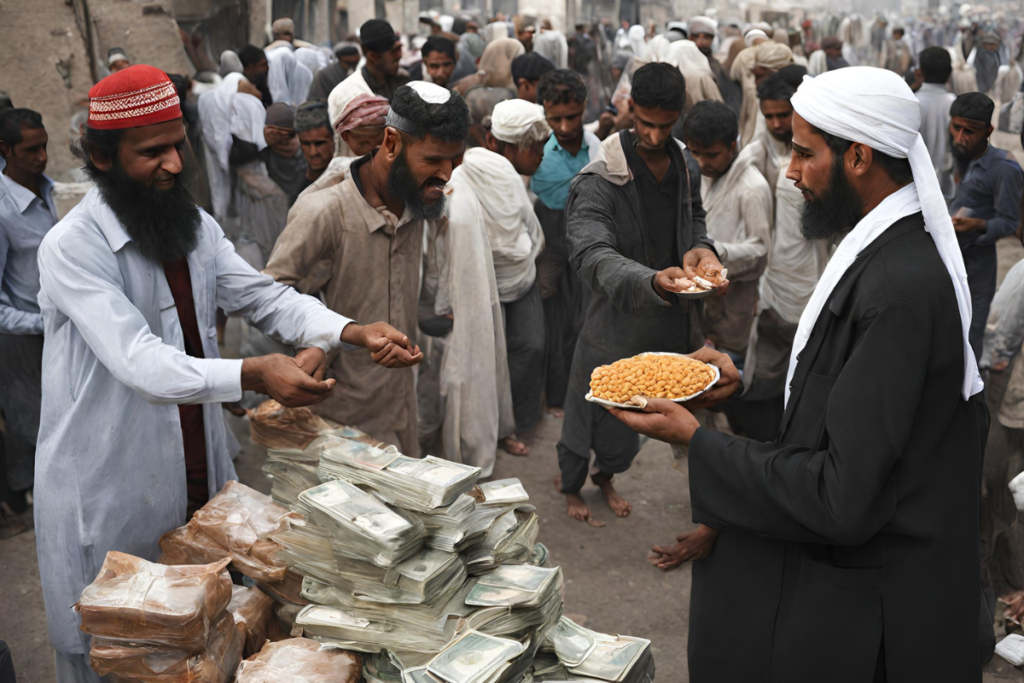
The emphasis on proportionality in wealth distribution emerges as a key theme, discouraging excesses while promoting a fair and just allocation of resources.
In navigating the delicate terrain of wealth management, Prophet Muhammad’s (ﷺ) wisdom stands as a beacon. It steers individuals away from the pitfalls of material excess and fostering a mindset of responsible stewardship.
Guidance on Family Welfare: Striking a Harmonious Balance
The Prophet’s counsel extends beyond the individual, encompassing the welfare of the family unit. His advice on providing for one’s family echoes the broader concept of sadaqa.
Balancing family welfare and generosity, the Prophet’s teachings underscore the interconnectedness of individual actions and their impact on the collective well-being of the family.
Leaving a legacy of abundance becomes not merely a financial imperative but a moral obligation, reflecting the Prophet’s vision for harmonious family life.
Contemporary Reflection
As we navigate the complexities of the modern world, the hadith’s timeless wisdom finds renewed relevance.
Applying the lessons from this encounter between the Prophet and Sa’d in contemporary life demands a thoughtful examination. Not to forget about our financial practices and attitudes toward wealth distribution as well.
The relevance of the Prophet’s guidance in managing wealth today extends beyond religious boundaries. It as well offers universal principles that resonate with individuals seeking a balanced and purposeful approach to their material resources.
Conclusion About Wealth Distribution in Islam
In conclusion, the hadith involving Sa’d ibn Abi Waqqas and Prophet Muhammad encapsulates profound insights into wealth distribution in Islam. The enduring wisdom of the Prophet’s counsel on moderation, proportionality, and family welfare serves as a timeless guide for individuals navigating the intricate terrain of wealth management.
As we reflect on these lessons, let us strive to embody the principles of responsible wealth distribution, nurturing a culture of generosity that extends beyond financial transactions to encompass the holistic well-being of individuals and their families.
As always, do share this article out to all of your family and friends. May it be one of the long lasting good deeds that rewards us well. Here and in the hereafter, InsyaAllah.
